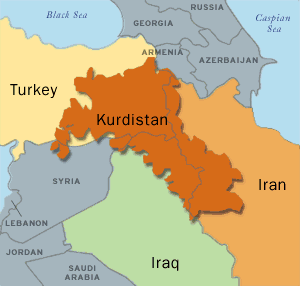The Turkish Constitution and the Kurdish Question
By Henri Barkey and Direnç Kadioglu
Henri J. Barkey was a visiting scholar in the Carnegie Middle East Program and is the Bernard L. and Bertha F. Cohen Professor at Lehigh University. He served as a member of the U.S. State Department Policy Planning Staff working primarily on issues related to the Middle East, the Eastern Mediterranean, and intelligence from 1998 to 2000.
Related Analysis
Winners and Losers in Turkey's Election
(commentary, June 13)
How to Read the Outcome of Turkey’s Elections
(commentary, June 10)
A Discussion on Turkey
(broadcast, May 12)
Turkey’s Kurdish question is that country’s single most important problem. It is and has always been a political problem. Successive Turkish governments have sought to resolve it either through repressive military and occasionally economic means. The recently concluded June 12 Turkish elections promised to usher in a new approach. This is because, in the run-up to the elections, a consensus had emerged that the newly elected parliament would start the process of writing a new constitution. The current one was authored in 1982 by a military junta.
read online
Turkey has changed greatly since 1982; in 2011, it is a far more diverse, prosperous, and sophisticated society. It is an economic power to reckon with and a candidate for European membership. The 1982 constitution, meanwhile, is ideological and authoritarian in intent and construction. By privileging the interests of the state over the individual, it has proven to be singularly inadequate at meeting Turkey’s current needs and challenges and an impediment to both greater democratization and the resolution of the Kurdish question.
During the election campaign, Turkey’s prime minister, Recep Tayyip Erdogan, promised to work on a new civilian constitution immediately after a new parliament convened. In his victory speech, he reiterated this promise. The prospect of a new civilian constitution has led to rising expectations among Turkish Kurds who have always seen this document as among the most important hurdles to their becoming full-fledged citizens of the republic. The Kurds have consistently argued that the 1982 constitution is not only undemocratic but also alienating, because of its abundant and overt characterization of citizens as being solely members of the “Turkish nation.”
The prospect of a new constitution has spurred numerous groups—from political parties, such as the pro-Kurdish Peace and Democracy Party (BDP), to think tanks, business organizations, and nongovernmental organizations (NGOs)—to start working on their own constitutional proposals. Soon after its 2007 electoral victory, the ruling Justice and Development Party (AKP) commissioned a draft constitutional proposal from a group of eminent jurists and academics. In the tumult that ensued following the 2007 elections, including an attempt to close it down, the AKP abandoned its efforts. In the ensuing years, however, the atmosphere became more conducive to rewriting the constitution. Prosecutors called in the leaders of the 1980 military coup for questioning; for the first time, officials cast doubt over the legitimacy of the intervention.
Still, the politics of reform are complicated. The June 12 elections resulted in big wins for both the ruling AKP and the BDP. The latter surprised everyone by electing many more representatives to parliament than expected. In a very short period of time, however, what appeared to be a propitious atmosphere to begin the hard process of bargaining over the constitution disappeared, as a number of BDP parliamentarians were prevented from taking their seats by judicial authorities. This, in turn, provoked a parliamentary boycott by the BDP. Then, as if the atmosphere was not sufficiently tense, a July 14 firefight between the army and presumed Kurdistan Workers’ Party (PKK) fighters erupted; thirteen soldiers and seven insurgents were killed.
The process of rewriting the constitution and reconciling Kurdish grievances will be subject to many more ups and downs. We aim to provide the reforms’ bare essentials. This is not meant to be an exhaustive list, nor do we intend to offer a solution to all of the problems associated with either the Kurdish question or the furtherance of democracy in Turkey. It is safe to argue that the continued democratization of Turkey is ultimately the best guarantee to resolve the Kurdish issue. Instead, we seek to identify the problematic aspects of the current constitution as a guide for what to expect from a new document.
Political actors will undoubtedly bring their own agendas into the process and, therefore, complicate it. What position the ruling AKP will assume is difficult to ascertain at the moment. This is primarily because Erdogan has been contemplating a systemic transformation of Turkey from a parliamentary to a semi-presidential system. As a result, a discussion of the political modalities falls outside our scope here.
When it comes to change, Kurds make three broad sets of demands: change the constitution’s emphasis on Turkish ethnicity, remove the prohibitions on cultural and political rights, and reduce excessive administrative centralization. After analyzing the influence of previous constitutions on the Kurdish issue, we focus on these three sets of changes.
اجمالي القراءات
1843


